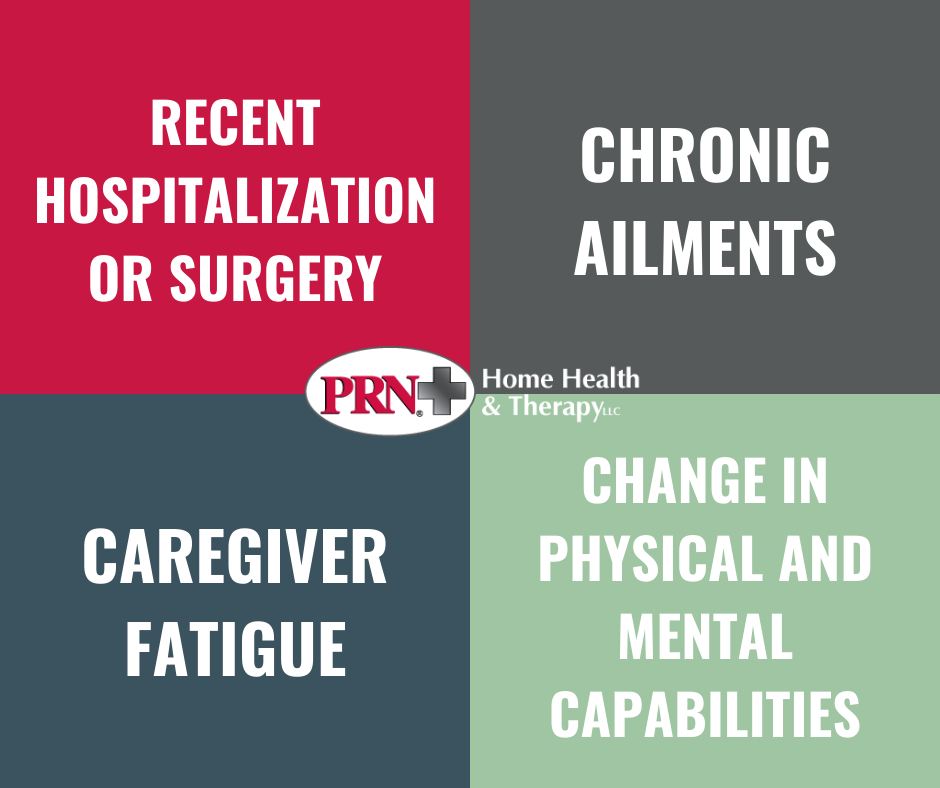What is Home Health Care?
Home health care is when patients do not need to leave the comfort of their own home to receive the medical care that they need. “Home” for a patient could be their family home, a senior apartment community, an assisted living facility or in their loved one’s home. To qualify for home health care, a patient must meet these three requirements:
- Patient must be homebound.
- Have a referral from their medical provider saying they need home health care services.
- Must have a skilled need, or care that must be performed by a skilled professional.
What Qualifies a Patient as Being Homebound?

Being homebound means that a patient is not able to leave their house without assistance from someone else or from an assistive device. These devices could be a wheelchair, walker or crutches. Being homebound could also mean that a doctor feels if a person leaves home that their health could worsen or put too much strain on that patient.
Types of Home Health Services We Provide
- At Home Nursing Care: Skilled nursing care includes wound care, medication management and pain management.
- At Home Therapy Care: This could be physical therapy, occupational therapy or speech therapy.
How to Know if Home Health Services Should Be Considered?
There are four main categories we use to evaluate when home health services are needed. Although these are all common signs that home health services may be needed, a doctor’s order is needed to start care.

Specific indicators that home health care may be needed include:
- Recent Hospitalization/Surgery
- Multiple visits to the emergency room
- Recent hospital admission
- Post-surgical care
- Wound care and infection control
- Caregiver Fatigue
- We are here to help prevent caregiver burnout by providing strategies and education to them.
- Primary caregiver can no longer give the quality of care needed
- Change in Physical and Mental Capabilities
- A change in ADL’s (activities of daily living)
- Changes in communication and cognition
- Frequent falls
- Social withdrawal
- Help required with walking
- Difficulty managing medications
- Limits on physical mobility
- Difficulty swallowing
- Incontinence
- Chronic Ailments
- Uncontrolled pain
- Skin changes (skin breakdown, redness at pressure points, chronic wounds)
- Chronic illness with periods of instability
- Neurological disease including Parkinson’s and Alzheimer’s
- Complications due to diabetes, heart disease or pulmonary disease
Payment Types Accepted
Home health services are covered through a patient’s Medicare benefits. To see if you qualify please contact our office for more information.
How Can Someone Request Home Health Services?
You can contact our office by calling 920.830.9911 OR fill out the form on our website here. For more FAQ related to home health care services you can visit our FAQ page.
